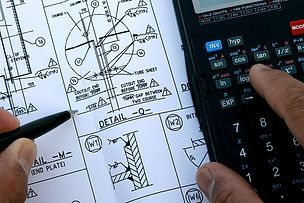R&D Tax Credit
From the time it was introduced in 1981, the intent of the R&D Tax Credit has been to incentivize companies to keep high-paying, technical jobs in the United States. Due to this fact, the credit criteria are broad and encompass a wide array of activities conducted in modern business. Many taxpayers incorrectly assume this incentive is intended only for cutting-edge technology firms, resulting in many eligible companies missing out of the opportunity to claim the credit.
In general, if a company designs, develops, or improves a product or manufacturing process, then they likely qualify for this credit. This development effort not only encompasses new product development, but also incremental improvements to existing products. Congress defines qualified research activities through the "Four Part Test" outlined below:
The activities must be technological in nature, meaning
that those activities rely on the principles of a hard science
(e.g. Computer Science, Engineering, Chemistry, Biology).
The activities must be performed for a permitted purpose.
A permitted purpose means that the activities develop or
improve upon a new or existing business component's (e.g.
product, software, process, etc...) functionality,
performance, reliability, quality, or cost reduction.
The activities must contain technical uncertainty relating
to capability, methodology, or appropriate design of the
business component.
The activities must constitute elements of a process of experimentation in an attempt to overcome the technical uncertainties related to number three of the test above. The process of experimentation can be summarized as the scientific method (i.e. develop a hypothesis, test the hypothesis, refine the hypothesis, and repeat) or similar to software's agile development process.
Many industries qualify for this incentive, including:
-
Aerospace
-
Agriculture
-
Architecture
-
Brokerages
-
Construction (including "LEED" related efforts)
-
Cosmetics
-
Engineering
-
Finance/ Insurance
-
Financial Technology ("FinTech")
-
Food Production/ Processing
-
Green Energy Projects
-
Information Technology/ Software
-
Manufacturing
-
Mining
-
Pharmaceuticals/ Medical Devices
-
Professional, Scientific, and Technical Services
-
Transportation
-
Utilities
-
Wholesale/ Retail



